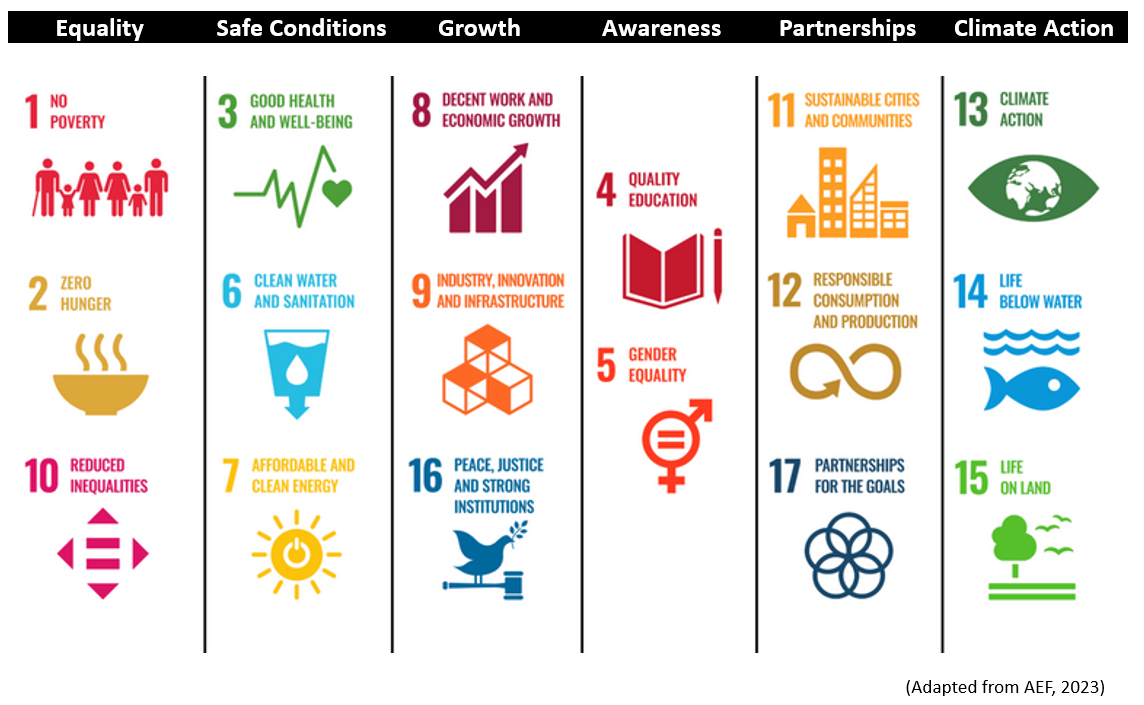The Global Environmental Change and Policy course focuses on four key questions:
- What are the nature and causes of global environmental change (GEC)?
- What do we know and not know about GEC - and why?
- What are the biological, physico-chemical and human implications of GEC?
- What can and should be done about mitigating and adapting to GEC?
Students can arrange internships as part of their thesis term.
Structure and objectives
The overall aim of the Option is to provide MSc candidates with the opportunity to become future, effective participants in addressing the grand challenges of global environmental change. We will do so by reference to current, leading environmental problem solvers. Accordingly, together we will learn to apply the tools, methods, knowledge and critical analytical skills that are required to address these grand challenges with climate change as a focal point. This will include progressive regulatory and policy responses to global environmental change problem solving activities.
Addressing the Sustainable Development Goals
Each year our Option curriculum is adjusted to match current trends, themes and even crises in relation to our environment globally and, therefore, locally. Accordingly, our cutting edge group projects for sustainable transformation are designed to address at least one Sustainable Development Goal from each of the 6 categories found below:
These are four of our current Group project themes and their corresponding coverage of the SDGs:
| Group Project | Equality | Safe Conditions | Growth | Awareness | Partnerships | Climate Action |
|---|---|---|---|---|---|---|
| AI, Machine Learning & Sustainability | 1, 10 | 3, 6, 7 | 8, 9, 16 | 4, 5 | 11, 17 | 13, 15 |
| Climate Change Loss & Damage for Sustainability | 1, 2, 10 | 6, 7 | 9, 16 | 4, 5 | 11, 17 | 13, 14, 15 |
| Small Scale Biodiversity Conservation for the Planet | 1, 10 | 3 | 8, 16 | 4, 5 | 17 | 13, 14. 15 |
| Sustainable Transformations Away from Fossil Fuels | 1, 10 | 7 | 8, 9, 16 | 4, 5 | 11, 12, 17 | 13, 15 |
The structure of the Option will guide MSc candidates in independently applying the necessary tools and methods to address GECP questions within an effective critical analytical framework. This is done through technical and corresponding contemporary regulatory and policy dialogues arranged into three main components:
Baselining the Global Environmental Condition
This module analyses the nature and causes of global environmental change as understood through both the academic research, public policy and private sector communities. Accordingly, MSc candidates will be able to demonstrate a critical, contemporary, interdisciplinary understanding of the state of global environmental change and efforts to address its main grand challenges for civil society through research and related problem solving frameworks as they are applied in practice. Analytical conflicts and the outcomes that arise within and across these three stakeholder communities will be given particular attention. Climate change-related linkage areas such as international development, water management, renewable energy, negative carbon emissions technologies, agriculture, forests and nature conservation will be explored to illustrate the baseline taking account of the IPCC and UNFCCC mandates.
Methods for Tackling Global Environmental Change
Here we explore the disciplinary and interdisciplinary tools and methods and progressive regulatory and policy options for addressing global environmental change. These will be understood primarily by reference to empirical and scientific modelling research methods that feature for issues such as climate change, natural resource management and ecosystem functionality and services valuation. As a result, MSc candidates will be able to synthesise a practical understanding of and be able to execute methodologies for evaluating global environmental change issues as the basis for contributing innovative technical and policy solutions. As a practical matter, MSc candidates will learn to represent and communicate upon behalf of a variety of participant stakeholders in global environmental change problem-solving situations in the public and private sectors. Understanding scientific risk assessment and economic cost benefit analytical approaches will be fundamental in this regard as they currently feature in mainstream discussion and stakeholder debates.
Implementing Interdisciplinary Grand Challenge Solutions to Global Environmental Change
MSc candidates will develop an individual and collective understanding as to what can and should be done to mitigate and adapt to global environmental change. They will learn to take responsibility for professional advice and option analysis including through the provision of a strategic basis for justifying such analysis by reference to contemporary understanding of technical decision-making tools. Peer-to-peer and simulated peer-client evaluations will feature in this skill set development framework. During this module, MSc candidates will also learn to maintain and enhance continuous improvement of understanding of the field by reference to self-professional management tools. These will be executed through Panel Projects to be conducted for “clients” including by using project management tools. For group project work, MSc candidates will work together to select specific grand global environmental challenges for more specific and detailed attention.
Learning and teaching
The course structure and individual seminars and activities are designed to enable each student to attain, inter alia, the following:
Understanding of
- the current state of knowledge about GECP and the uncertainties surrounding it;
- the similarities and differences between the problems raised by GECP and other environmental problems;
- the key processes, drivers and inter-relationships involved;
- the principal impacts of GECP on natural and human systems; and the principal ethical, legal and socio-economic issues raised;
- particular problems faced by developing countries;
- interregional and regional institutional mechanisms and scientific organisations;
- the social, economic and environmental objectives for the global environment.
Skills in
- the analysis of the global dimension of environmental problems, and the extent to which GECP raises distinctive challenges;
- the location, handling, critical evaluation, interpretation and analysis of GECP information;
- the application and appraisal of selected analytical techniques;
- the design and execution of a GECP-related project; communicating clear, unambiguous information, evidence or advice.
Capabilities in
- applying global perspectives to complex environmental problems;
- analysing the key drivers of GECP and their interrelationships;
- developing independent judgement in relation to GECP-related issues and evidence;
- participating in the formulation, implementation or evaluation of GEC-related policies;
- participating effectively in competent consultancy or advisory work.
Teaching
The lectures are given by Imperial College academics and researchers, as well as guest Lecturers from partner institutions. We also have a series of talks by stakeholders, people who are actively engaged in addressing problems of global environmental change. They come from all sectors of society, including NGOs, government and industry. A number of our guest lecturers are linked to Imperial College’s Grantham Institute who aim to provide students with an insight into the research and work of the Institute.
Assessment
Coursework
Understanding, skills and capabilities are developed and assessed through active participation in coursework which comprises
- Research and in-class discussions.
- Negotiation skills exercise.
- Panel Group Exercise – where the students manage and self- and peer-assess the preparation of a joint report on a GECP related issue (see “Panel sessions” window below)
Each element of the coursework has an element of peer and self-assessed work in that students are required to assess their own and their peers’ performance in research, presentation, negotiation and group work. This is done by way of a short report on their own and other students’ performance in each task.
Assessment
Coursework and participation comprise 100% of the final marks as follows:
-
40% - Panel Project
-
30% - Negotiation exercise (video) & class participation
- 30% - Individual problem solving assessment. The assessment involves writing two short reports requiring the critical assessment of interdisciplinary scientific and policy material related to a specific situational context.
Panel sessions
Coursework will be structured through a series of panel meetings, first establishing individual and group mandates by negotiation between the students themselves, which will be adapted in the light of experience and fulfilled in subsequent sessions.
Panel Meetings (comprising approx. 10 sessions) run throughout the option term. The aims of these sessions are to establish and coordinate research, discussion, presentation and negotiation in respect of selected global environmental change issues, leading ultimately to the formal conclusion or agreed policy and scientific statement on one or more aspects of GECP.
The aim is to encourage:
- independent learning
- familiarity with the current state of scientific knowledge and legal and policy development
- the development of presentation and negotiation skills
- an understanding of strategies for achieving consensus solutions to environmental problems through the presentation and negotiation of scientific or policy material
- an ability to analyse, synthesise and present scientific, legal and policy material
- an ability to assess the strengths and weaknesses of scientific, legal and policy arguments
- to prepare and exercise a strategy for negotiation using this material and a particular policy brief
- to contribute effectively to a consensus outcome in group work
Recommended reading
- A. Dessler, 'Introduction to Modern Climate Change', (CUP, 2012)
- D Helm and C Hepburn, ‘The Economics and Politics of Climate Change’ (Oxford, 2010)
- K. Makuch and R. Pereira (eds.) 'Environmental and Energy Law', (Wiley-Blackwell, Sept 2012)
- P. Sand and J. Peel, 'Principles of International Environmental Law', (CUP, Third Edition, 2012)
Find out more about the MSc course
Contact us
Terms and conditions
Important information that you need to be aware of both prior to becoming a student, and during your studies at Imperial:

